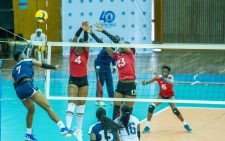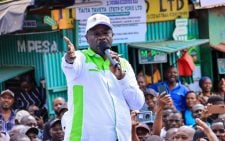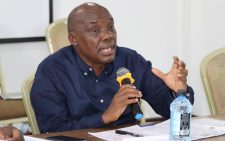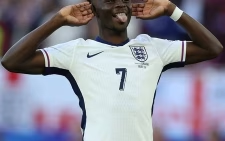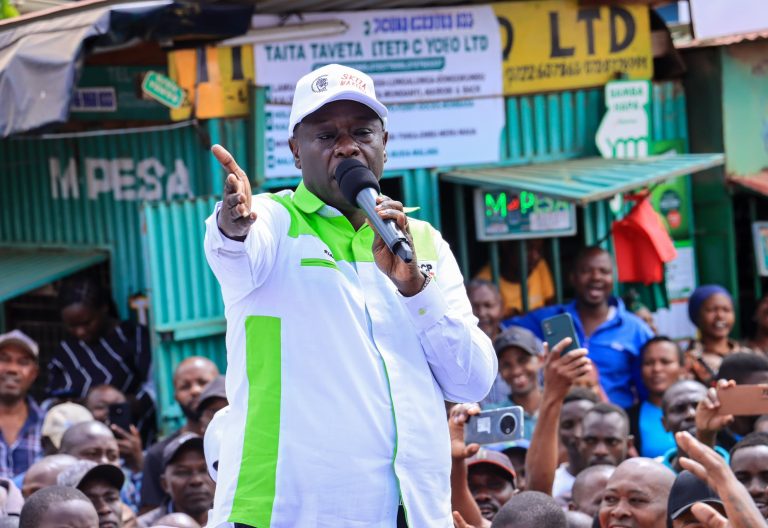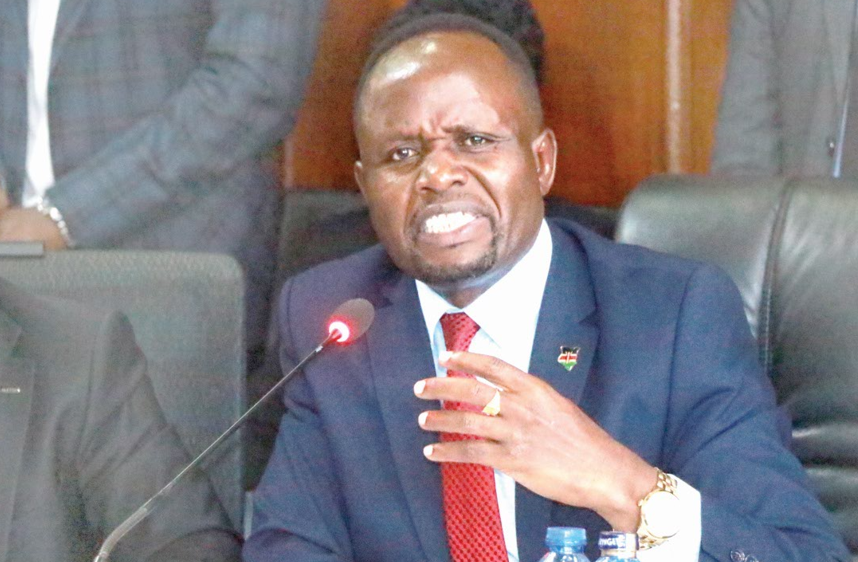Why big boys aren’t sitting pretty in political strongholds
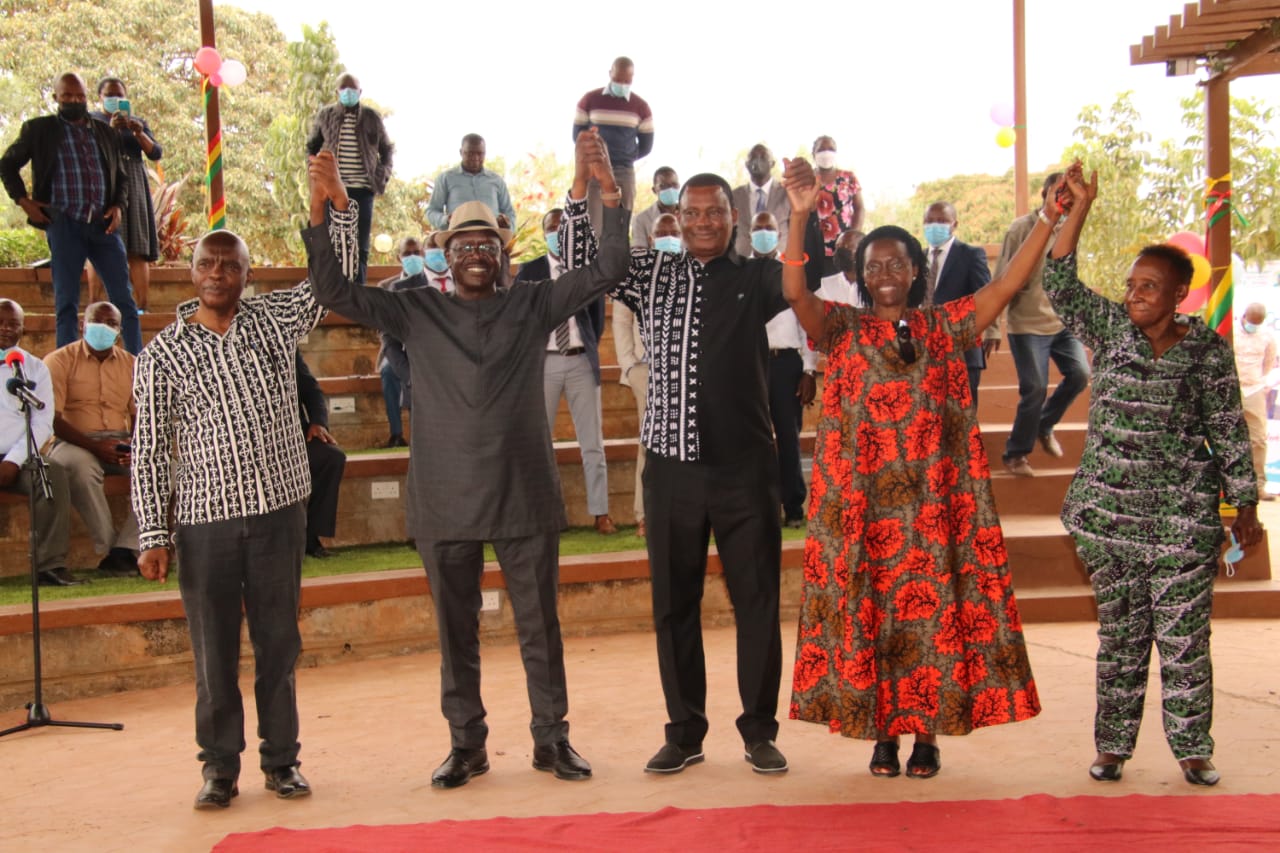
Benjamin Imende
Leaders of big political parties are fighting to stem the emergence of small outfits in their strongholds for fears that it could weaken their support in the next General Election.
While Deputy President William Ruto has put up a spirited fight assuring his troops that his United Democratic Alliance (UDA) will conduct free and fair nominations, Opposition chief Raila Odinga has been quelling rebellion in his strongholds.
Wiper party’s Kalonzo Musyoka too has declared politicians supporting other parties in Ukambani will face a tsunami in the next election.
Raila was last month forced to tour Migori where renegade Governor Okoth Obado has been popularising the People’s Democratic Party on which he intends to vie for the presidency.
At the Coast, Raila unsuccessfully tried to reprimand Kilifi Governor Amason Kingi, who has been pushing for formation of a Coast-grown party, a move that is hurting Raila’s Orange party.
Kingi has since founded the Pamoja Alliance (PAA) and started an aggressive recruitment drive in what was initially an ODM stronghold disregarding Raila’s advice.
Another party
Imploring the governor against the decision, Raila said he has been with Kingi since 2002.
He appointed him and when devolution came he supported him for two terms as Kilifi governor.
“Because he is not vying he now wants to form another party. Stay in ODM and I will lift you up to the national level. ODM is a national party,” Raila said in Kilifi.
During the Migori meeting, Raila’s allies, led by Senator Ochillo Ayacko scolded Obado whom they described as a “greenhorn and political minnow” out to spoil the ODM leader’s votes.
“I want to beseech you Migori people not to be taken for a ride. The political experience Raila has cannot be equated to beginners,” Ayacko said.
Ruto is also faced with a major test after some of his allies such as Gatundu South MP Moses Kuria founded his political party dubbed Chama Cha Kazi with efforts being made to found or spruce up old formations in President Uhuru Kenyatta’s Central Kenya backyard.
Murang’a Governor Mwangi Wa Iria has been recruiting members for his Usawa Party while former Trade minister Mukhisa Kituyi and Devolution Cabinet Secretary Eugene Wamalwa are set to launch their political parties.
Pundits say fears over party primaries, regional interests and angling for bargaining power could be the motivation behind the proliferation of political parties.
Besides posing competition, the small parties become attractive landing grounds for political enemies.
Registrar of Political Parties Anne Nderitu said they had received numerous applications for registration of parties.
“We have 75 registered political parties, 23 provisional and a good number of people have also applied to register new parties,” the Nderitu said.
“All the parties must meet the laid down conditions in the law before they are registered. All registered parties have met all the conditions,” she told People Daily.
Key party leaders such Raila and Kalonzo have been forced to move to the grassroots to quell the rise of the small parties even as they ply their trade on the national stage.
Kalonzo will be wrestling the influence of Machakos Governor Alfred Mutua’s Maendeleo Chap Chap as well Muungano, which has endorsed Makueni Governor Kivutha Kibwana for the presidency.
The former Vice-President will also be facing a sustained onslaught spearheaded by his perennial rival, Charity Ngilu, the leader of Narc and UDA chairman Johnstone Muthama, who has vowed to wipe Wiper party out of Ukambani in support of Ruto.
“I have no issue with any leaders in Ukambani who are supporting DP here. The likes of Victor Munyaka, soon there will be a tsunami that will not leave any rock unturned” said Kalonzo on Tuesday.
Though Kuria has endorsed Ruto for the presidency with UDA ticket, he maintains that he will not fold up his party.
Political college
Kuria says small parties know well that they will be competing with “deep-pocketed parties of the big boys” but they will continue to rely on their energy and brains to drive their agenda.
“My party is a political college, where many students will graduate to take over leadership of this country.
We are building a party for today and tomorrow,” Kuria said. He continued: “The big boys are losing because this country wants a new conversation.
We (Kenyans) have been misused for long and want good and new leadership, which can work together with them.
I believe my party and UDA share the same ideologies because we are both founding members of the Hustler Nation.”
Politicians and experts opine that the 2013 and 2017 arch rivals – NASA and Jubilee- are losing the grassroots slowly following the changing political dynamics.
Jubilee party has been hard hit following the registration of Chama Cha Kazi, The Service Party associated with former Agriculture Minister Mwangi Kiunjuri, Usawa Kwa Wote and Tujibebe Wakenya Party unveiled by former Kiambu Governor William Kabogo.
Voting patterns
Political analyst Martin Andati opines that small parties are in touch with people at the grassroots and might dictate the voting patterns in a good number of regions.
“You also realise that former Justice Minister Martha Karua (Narc-K) is slowly coming up very strongly, and she is someone Mt Kenya can build on to be a spokesperson,” Andati said.
There are also plans to re-launch old parties, which were once strong such as Democratic Party and Party of National Unity. Agriculture CS Peter Munya remains the PNU de facto leader.
Meru Governor Kiraitu Murungi has also called on Mt Kenya East region to register another party to safeguard their interests.
Embu gubernatorial aspirant Lenny Kivuti is warming up to taking over the Restore and Build Kenya party.
Besides Kingi’s new outfit, the Communist Party of Kenya has also signed a coalition agreement with Shirikisho Party of Kenya, Kadu-Asili, Umoja Farming Party of Kenya and the United Republican Party to provide an alternative voice to locals in the coastal region, said CPK national vice-chairman Buka Ngesa.
According to Ngesa, small political parties provide alternatives to candidates in cases away from the dictates of the leaders of the main political formations.

